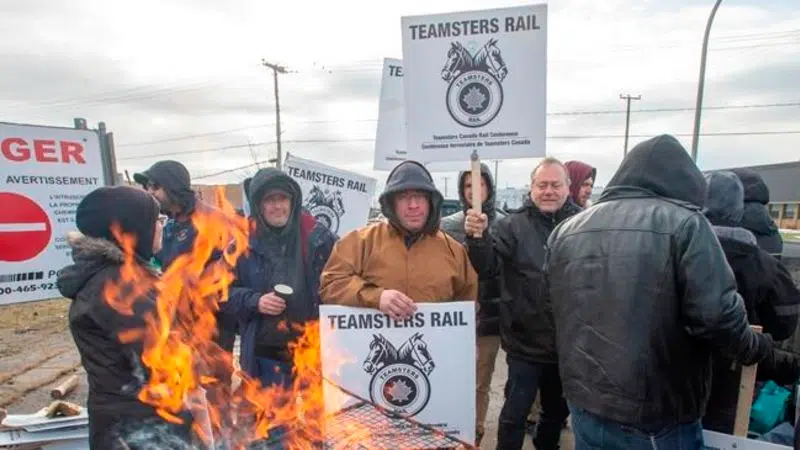
Garneau says talks, not bills, the best way to end CN strike as pressure rises
MONTREAL — With tensions rising and no end in sight, the federal government urged Canadian National Railway Co. and its striking workers to continue talks in what Ottawa views as the fastest way to resolve a dispute that has stopped freight trains across the country.
“The most probable and the quickest way to solve this is through collective bargaining,” federal Transport Minister Marc Garneau told reporters Friday.
“We are making both sides very, very aware of the impacts this is having on Canadians. Canadians are not only inconvenienced but, in some cases, pretty stressed by this,” he said. “We are encouraging both sides to keep talking.”
The strike at the country’s biggest railway entered its fourth day as round-the-clock negotiations continue under the watch of federal mediators while rhetoric ratchets up.
